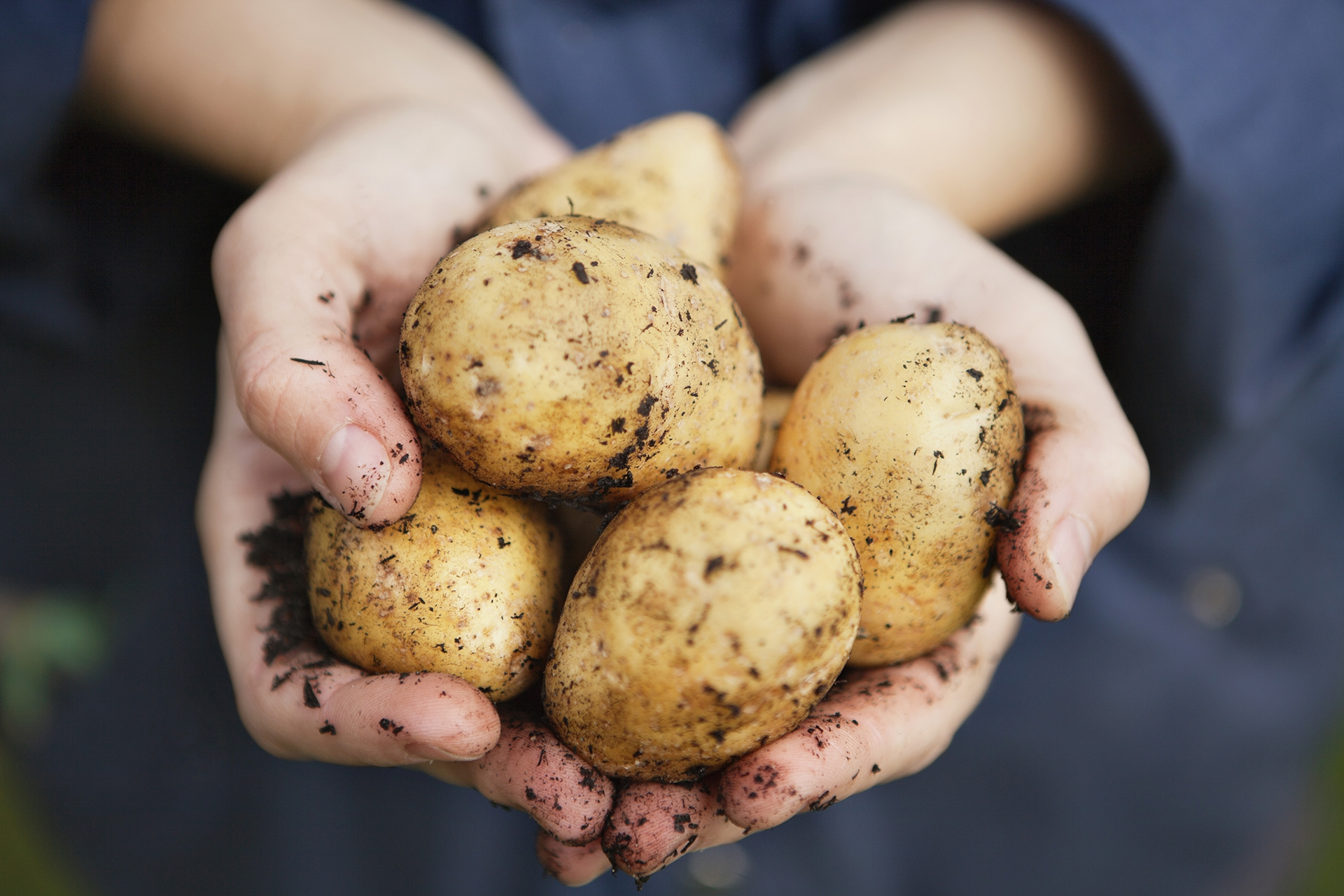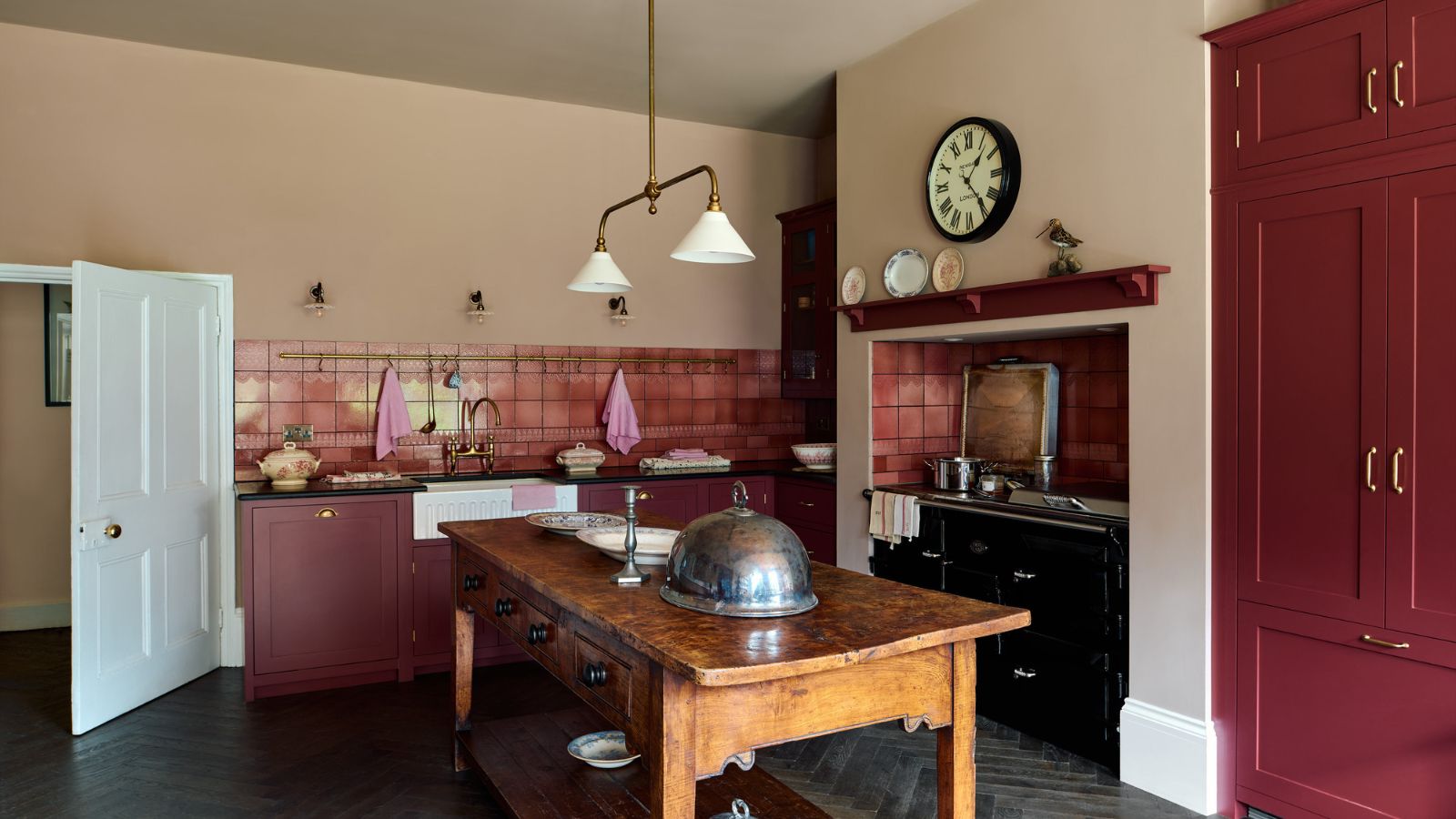How to store potatoes – 5 ways to keep them in good condition
Wondering how to store potatoes you’ve grown in the garden or bought from a store? Here’s the answer


Whether you’ve grown them or bought them, knowing how to store potatoes correctly will reap rewards. Unlike most other veggies, potatoes can be stored for a matter of months, so they’re great value.
If you’ve learned how to grow potatoes you’ll realise that it’s easy to end up with a surplus and storing means you can enjoy the products of your labor for longer. But even if you picked potatoes up in a supermarket, the right storage tactics make the most of your spend.
We’ve got the details on how to store potatoes successfully right here.
How to store potatoes
If you grow potatoes in a veggie garden, you can end up with a large harvest, but even growing potatoes in a container or growing potatoes in a bag can produce way more than you’ll consume straightaway.
Follow our guide to how to store potatoes to keep these homegrown treats ready to eat along with your supermarket buys and an excess won’t be a waste, though.
1. Check the condition of potatoes before storing
Before you store potatoes, it’s important to check their condition. Any that are rotting, have soft spots, or show damage from pests or being dug up are not suitable for long term storage. Store only potatoes in good condition.
Bear in mind that if potatoes have damage that can be cut out, they can still be used but do cook them soon rather than storing them long term.
Should you wash them? That depends on whether they are store bought or homegrown. For the former? ‘Don’t wash them until you’re ready to eat them,’ say the experts at Potatoes USA.
But if the potatoes are from your veggie garden, they should be cleaned before they are stored. ‘You need only brush off the soil on potatoes grown in coarse, sandy soil,’ advises Oregon State University Extension Service. ‘But if the soil is fine, sticky clay, your potatoes may need washing. If so, be sure they are completely dry before placing them in storage. Minimize tuber exposure to light while cleaning.’
2. Cure homegrown potatoes before storing
Homegrown potatoes should be cured before they are stored. To cure them, keep them in a dark but well ventilated place with moderate temperatures and high humidity for a period of one week to 10 days, advise the OSU experts.
3. Keep potatoes well ventilated and cool
For store-bought and cured homegrown potatoes, the next step is to put them into a receptacle for storage.
If supermarket potatoes are in a plastic bag, take them out. All potatoes should be stored in a mesh bag or ventilated box or basket.
4. Put them into a cool, dark place
The ideal temperature for potato storage is about 45 to 50ºF (7 to 10ºC), which will be cooler than the temperature at which homegrown potatoes were cured.
This won’t be the temperature in your kitchen, of course. The best place to store potatoes is an unheated basement, or perhaps an insulated shed.
Tempted to put them into the refrigerator? Don’t. ‘Storage temperatures below 45ºF can cause sugar buildup or sweetening,’ say the experts at OSU Extension.
It’s also vital that potatoes are stored in the dark. Light will turn the potato tubers green. ‘Green on the skin of a potato is the buildup of a chemical called solanine. It is a natural reaction to the potato being exposed to too much light,’ explains Potatoes USA. A potato that is slightly green isn’t a problem and you can just cut this part away before cooking and eating, but very green potatoes should be discarded.
5. Check potatoes from time to time
Take a look at the potatoes you’ve stored every so often. If a potato starts to rot it can spread this to others, so throw it out. Softness, shriveling and mold all indicate a potato should be removed from the store.
A potato that’s sprouted can be be eaten if you cut the sprout off, but don’t consume any that are also soft or shriveled.
What is the proper way to store potatoes?
To store potatoes, keep them somewhere that is cool and dark as well as dry. If you aren’t storing for the long term, but simply want to keep them in good condition after you’ve bought them home from the store, keep them in a pantry or cabinet. Never leave them out on a countertop.
‘Avoid high temperatures such as next to appliances or under the sink,’ say the experts at Potatoes USA.
How do you store potatoes so they don’t sprout?
To store potatoes so they don’t sprout, keep them in a cool, dark and dry place. Make sure they’re not stored with onions, too, as that can cause them to sprout.
The experts at StopFoodWaste suggest storing them with an apple. ‘The ethylene gas given off by an apple will prevent potatoes from sprouting,’ they explain.
Sign up to the Homes & Gardens newsletter
Design expertise in your inbox – from inspiring decorating ideas and beautiful celebrity homes to practical gardening advice and shopping round-ups.

Sarah is a freelance journalist and editor. Previously executive editor of Ideal Home, she’s specialized in interiors, property and gardens for over 20 years, and covers interior design, house design, gardens, and cleaning and organizing a home for Homes & Gardens. She’s written for websites, including Houzz, Channel 4’s flagship website, 4Homes, and Future’s T3; national newspapers, including The Guardian; and magazines including Future’s Country Homes & Interiors, Homebuilding & Renovating, Period Living, and Style at Home, as well as House Beautiful, Good Homes, Grand Designs, Homes & Antiques, LandLove and The English Home among others. It’s no big surprise that she likes to put what she writes about into practice, and is a serial house renovator.
-
 It’s a concept straight out of a fashionista's playbook, but I used the Sandwich Method to organize my kitchen shelves – it’s never looked sleeker
It’s a concept straight out of a fashionista's playbook, but I used the Sandwich Method to organize my kitchen shelves – it’s never looked sleekerIt transformed messy to mesmerizing in a matter of seconds
By Punteha van Terheyden Published
-
 The moody kitchen in this Victorian home has the most unique wall design I've ever seen – it's the perfect way to bring an elegant, aged feel to the space
The moody kitchen in this Victorian home has the most unique wall design I've ever seen – it's the perfect way to bring an elegant, aged feel to the spaceThe hand-painted feature has brought a sense of history and patina back into the remodeled kitchen
By Molly Malsom Published